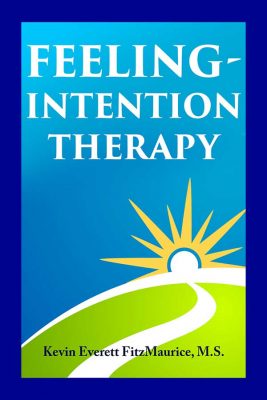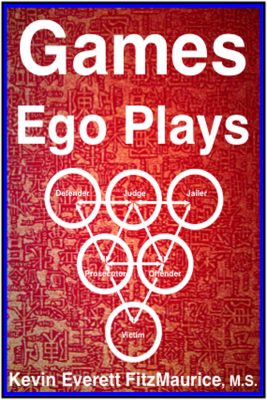Counselors: 4 Kinds
- Garden will teach you an easy and effective Cognitive Behavioral Therapy (CBT & REBT) system.
Counselors: 4 Kinds you should know how to recognize. Most counselors have good intentions; however, all do not have good methods.
- Read and discover the best self-help system using CBT & REBT.
Counselors: 4 Kinds
- There are four basic kinds of counselors, therapists, or psychotherapists.
- Cure Seeker
- Codependent
- Monster
- Accidental
Counselors: PERCENTAGES OF EACH KIND
- This is just a guesstimate.
- Cure seekers: 48%.
- Codependents: 48%.
- Monsters: 2%.
- Accidental: 2%.
Counselors: INTENTION OF EACH KIND
- Cure seekers are trying to fix themselves by fixing their clients.
- Codependents try to stay superior by “helping” or “rescuing” inferiors.
- Monsters are seeking new victims.
- Accidental just fell into counseling as a way to make a living.
Counselors: RESULTS OF EACH KIND
Cure Seekers
- Cure seekers help by trying to be helped and learn what helps.
- Cure seekers also harm when they give up on finding help for themselves and turn into babysitters for clients, and so condone client’s whining, blaming, and damning, which are the client’s real problems.
Codependents
- Codependents harm by:
- (1) keeping clients sick so they can use them to feel superior;
- (2) making clients sicker and more dependent on them for job and ego security;
- (3) keeping clients on the other side of the fence, that is, by maintaining an us-them duality;
- (4) having the greatest prejudice against mental health recovery and rehabilitation by, for example, not wanting people in the counseling field who are recovering.
Monsters
- Monsters hurt by exploiting the client’s vulnerability, weakness, and neediness.
- Monsters exploit clients sexually, financially, politically, and otherwise.
Accidental
- Accidentals became counselors by accident, which means they fell into the job through circumstances or a perceived lack of other options.
- Hence, they can be cure seekers, codependents, monsters, or just doing a job either poorly or well.
- They can also be lazy and ineffective because they are not motivated to be a great counselor.
Counselors: BEWARE OF SOME
Monsters
- Beware monsters who seek to use and abuse you.
- Watch for boundary violations.
- Watch for emotional manipulation.
- Watch for requests and desired favors.
- Watch for dual relationships (having any other relationship along with having a counselor-client relationship).
- An ethical counselor will not accept expensive (time, energy) gifts or favors.
Paid Friends
- Beware paid friends who are not helping you develop your coping and problem-solving skills, but who are happy to support you and listen to you whine.
- People willing to prostitute their friendship are not willing to do the work to help you.
- An ethical counselor will risk your friendship (the counseling relationship) to confront your counseling issues.
- You have a phony paid friend if you are never challenged or confronted.
Codependents
- Beware codependents who need to keep you sick and suffering.
- To understand this kind of, visit Al-Anon meetings for partners of alcoholics who are often part of the problem and how the problem continues.
- They will make excuses for you to your face and blame you behind your back.
- They play the victim while victimizing you.
- They don’t want people with mental health diagnoses to become professional counselors.
- They don’t want people in recovery to join professional counseling groups.
- They want to maintain an us-them dichotomy to maintain their superiority.
- They believe they have a superior role, so that makes them superior.
- Read for the most complete and comprehensive understanding of feelings available.
Counselors: Quotations Various Sources
Listed Alphabetically
“A fool is only a fool because he won’t see he is a fool.” —Kevin Everett FitzMaurice
“A man of genius makes no mistakes. His errors are volitional and are the portals of discovery.” —James Joyce
“But if ye be without chastisement, whereof all are partakers, then are ye bastards, and not sons.” —Hebrews 12:8
“By honestly acknowledging your past errors, but never damning yourself for them, you can learn to use your past for your own future benefit.” —Albert Ellis and Robert A. Harper, A Guide to Rational Living, Third Edition, p. 194
“Correction is grievous unto him that forsaketh the way: and he that hateth reproof shall die.” —Proverbs 15:5
“Failure doesn’t have anything to do with your intrinsic value as a person.” —Albert Ellis and Robert A. Harper, A Guide to Rational Living, Third Edition, p. 206
“For whom the Lord loveth he chasteneth, and scourgeth every son whom he receiveth.” —Hebrews 12:6
“If we eliminated all errors, we would also eliminate much discovery, art, insight, learning, and creativity that results from facing errors.” —Kevin Everett FitzMaurice
“If ye endure chastening, God dealeth with you as with sons; for what son is he whom the father chasteneth not?” —Hebrews 12:7
“My son, despise not the chastening of the LORD; neither be weary of his correction:” —Proverbs 3:11
“The trouble with most of us is that we would rather be ruined by praise than saved by criticism.” —Norman Vincent Peale
“When receiving correction, the wise seeks to learn, and the fool seeks to justify with excuses.” —Kevin Everett FitzMaurice
Counselors: Quotations from Scripture
Listed Biblically
“A wise man will hear, and will increase learning; and a man of understanding shall attain unto wise counsels:” —Proverbs 1:5
“Where no counsel is, the people fall: but in the multitude of counselors there is safety.” —Proverbs 11:14
“The way of a fool is right in his own eyes: but he that hearkeneth unto counsel is wise.” —Proverbs 12:15
“Deceit is in the heart of them that imagine evil: but to the counselors of peace is joy.” —Proverbs 12:20
“Without counsel purposes are disappointed: but in the multitude of counselors they are established.” —Proverbs 15:22
“Hear counsel, and receive instruction, that thou mayest be wise in thy latter end.” —Proverbs 19:20 “Every purpose is established by counsel: and with good advice make war.” —Proverbs 20:18
“Take counsel, execute judgment; make thy shadow as the night in the midst of the noonday; hide the outcasts; bewray not him that wandereth.” —Isaiah 16:3
“Extol not thyself in the counsel of thine own heart; that thy soul be not torn in pieces as a bull [straying alone.]” —Ecclesiasticus 6:2
“As timber girt and bound together in a building cannot be loosed with shaking: so the heart that is stablished by advised counsel shall fear at no time.” —Ecclesiasticus 22:16
“Give not over thy mind to heaviness, and afflict not thyself in thine own counsel.” —Ecclesiasticus 30:21
“A man of counsel will be considerate; but a strange and proud man is not daunted with fear, even when of himself he hath done without counsel.” —Ecclesiasticus 32:18
“And let the counsel of thine own heart stand: for there is no man more faithful unto thee than it.” —Ecclesiasticus 37:13
“Let reason go before every enterprize, and counsel before every action.” —Ecclesiasticus 38:33
“Gold and silver make the foot stand sure: but counsel is esteemed above them both.” —Ecclesiasticus 40:25
- Read for the most complete and comprehensive understanding of feelings available.
Related Pages of Free Information
- CBT, CT, & REBT Cognitive Psychotherapies: List Pages
- Coping Skills: Free Help
- Counseling Issues: Free Help
- Ego & Self-Esteem Fast-Facts
- Emotional Responsibility: List Pages
- Exercises & Techniques: List Pages
- Feeling & Coping: Fast-Facts
- REBT (Rational Emotive Behavior Therapy): List Pages
- Self-Esteem Issues: List Pages
- Unconditional Self-Esteem (USE): Defined
- Read and discover the best diagrams and maps of how people play games with your mind and heart.
- Read for the most complete and comprehensive understanding of feelings available.
Counselors: 6 Groups of Topics Menu
- 1. Pages by Topic
- 2. Fast-Facts by Topic
- 3. Quotations by Topic
- 4. Poems by Topic
- 5. Scripture by Topic
- 6. Websites by Topic
- Read and discover how CBT, REBT, & Stoicism evolved into one system: STPHFR.
- Read and discover the world’s best breathing exercise for centering and peace of mind.
- Read and discover the best diagrams and maps of how people play games with your mind and heart.
Counselors: 10 Skills & Topics Menu
- 1. Coping Skills & Topics
- 2. Problem-Solving Skills & Topics
- 3. Communication Skills & Topics
- 4. Recovery Skills & Topics
- 5. Anger Skills & Topics
- 6. Blame Skills & Topics
- 7. Thinking Skills & Topics
- 8. Responsibility Skills & Topics
- 9. Counseling Skills & Topics
- 10. Praying Skills & Topics
- Read and discover how CBT, REBT, & Stoicism evolved into one system: STPHFR.
- Read and discover the world’s best breathing exercise for centering and peace of mind.
- Read and discover the best diagrams and maps of how people play games with your mind and heart.





